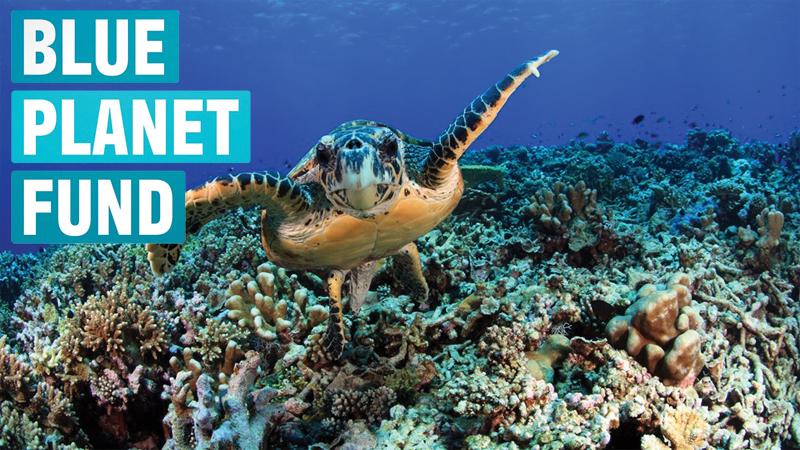
The first Blue Planet Fund (BPF) - Ocean Country Partnership Program (OCPP) Biodiversity Stakeholder Session was held at the Ministry of Environment recently introducing the Defra-led (Department for Environment, Food and Rural Affairs) BPF visit to Sri Lanka while the second meeting of the BPF–OCPP took place on the same day with the Fisheries and Seafood Sector related agencies.
The £500 million Blue Planet Fund, financed by the UK Official Development Assistance (ODA) budget, supports developing countries to protect the marine environment and reduce poverty and was developed by the UK Government to protect the ocean from plastic pollution, warming sea temperatures and overfishing.
This includes the UK’s call to protect at least 30% of the global ocean by 2030 and UK’s commitments to stop plastic pollution entering the ocean through the joint UK and Vanuatu-led Commonwealth Clean Ocean Alliance.
One of the Fund’s programs is the newly designed bilateral technical assistance program which is based on scoping and needs assessments, ocean partnerships and emergency marine pollution responses. The OCPP aims to deliver marine science technical assistance and the three core themes of marine pollution, biodiversity loss and supporting sustainable seafood and supports countries in strengthening marine science expertise, developing science-based policy and management tools, and educating coastal communities.
The OCPP has the ultimate aim of delivering tangible and positive impact on the livelihoods of coastal communities that depend on healthy marine ecosystems. The OCPPs partners are Belize, Bangladesh, India, the Maldives and the Pacific.
The close and active collaboration between the Ministry of Foreign Affairs and the British High Commission in Colombo on several other climate and environment related initiatives resulted in Sri Lanka receiving support under the BPF-OCPP.
As part of the OCPP collaboration with Sri Lanka, a delegation comprising of officials from the UK Government’s Defra, Centre for Environment, Fisheries and Aquaculture Science (Cefas), Joint Nation Conservation Committee (JNC) and Marine Management Organization (MMO) visited Sri Lanka from March 14-18 and held several meetings, field visits and discussions with local stakeholders. This visit was preceded by a technical visit of Cefas from February 28 to March 11.
Deputy British High Commissioner to Sri Lanka, Lisa Whanstall said she looks forward to future partnerships. She commended the Government for wide-ranging cooperation and commitments at UNFCCC COP-26. She said, “The UK is eager to continue supporting Sri Lanka to achieve these targets.”
The UK Government had spent close to £1 million under the Commonwealth Litter Programme (CLiP) to provide assistance in combating marine pollution last year.
Assistance via CLiP provided laboratory facilities to analyse micro plastics to MEPA, NARA, ITI and the CEA, development of educational packs for primary and secondary schools and developing media packs for mainstream and social media in local languages, research collaboration, assessment of ghost fishing gear and accumulated waste in ports, providing garbage trapping nets for rivers.
The UK delegation expressed their willingness to continue supporting Sri Lanka to help drive transformative action and shift the relationship between people, science and the planet.
The Secretary to the Ministry of Environment, Dr. Anil Jasinghe said economic activities associated with the coastal and marine resources and environment generate 10 percent of Sri Lanka’s foreign exchange earnings and account for 6.7% of employment.
Then State Minister for Ornamental Fish, Freshwater Fish and Shrimp Farming, Fisheries Harbour Development, Multi-Day Fishing and Fish Exports, Kanchana Wijesekara said that over 80% of Sri Lanka’s fish stocks have depleted with a significant effect on tourism. He said post-harvest losses (40%); insufficient availability of technical advice, need for a stronger legal framework and monitoring/management of marine resources are the main areas of concern.
The Minister called for assistance to develop aquaculture and sustainable fishing and added that the State Ministry will give its fullest support to the relevant agencies for the collaboration under BPF–OCPP.
The Blue Planet fund will aim to provide support that would ensure seafood in Sri Lanka is produced and distributed in ways which support healthy ecosystems, does not over-exploit marine stocks, provides sustainable inclusive and equitable livelihoods and enhance resilience to climate and socioeconomic shocks.
The OCPP programs will also incorporate cross-cutting themes such as gender and vulnerable groups, climate change and economic shocks.
